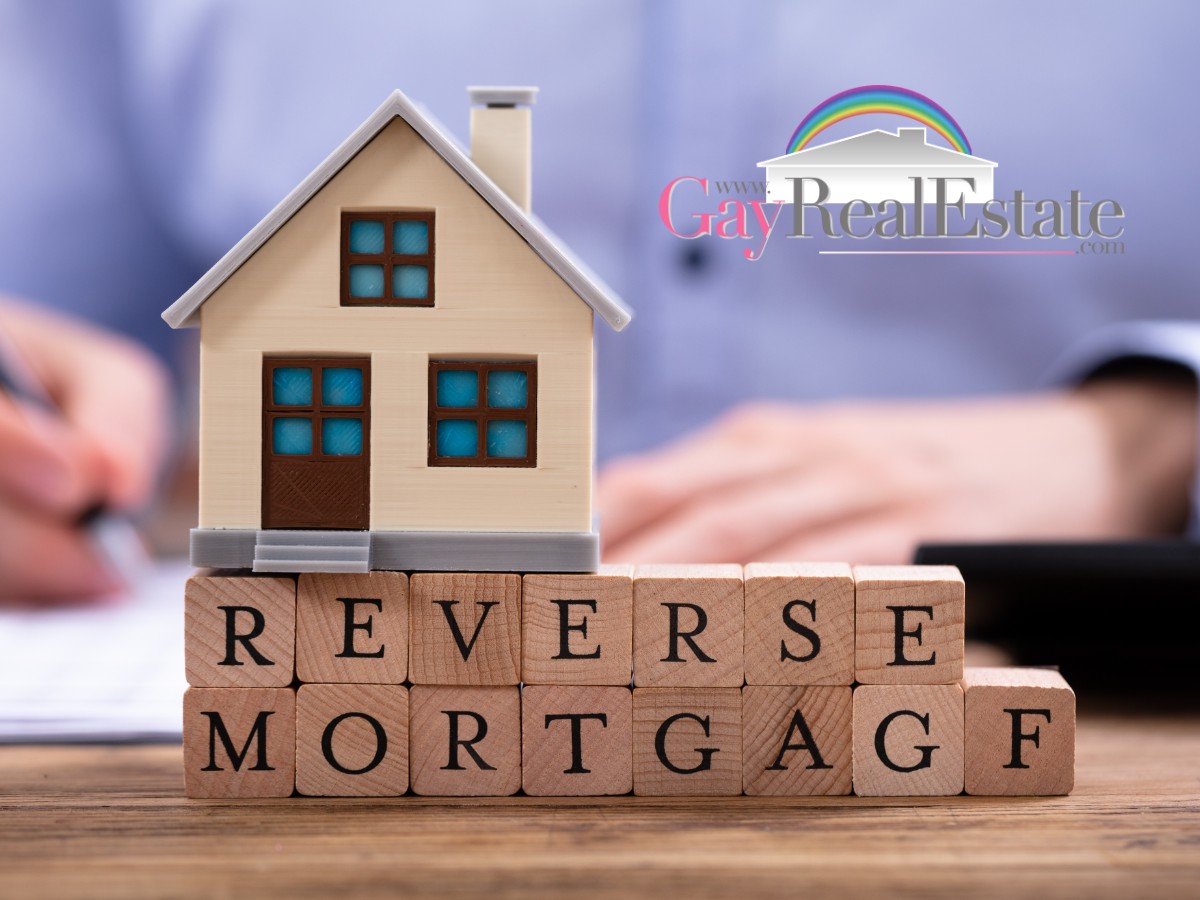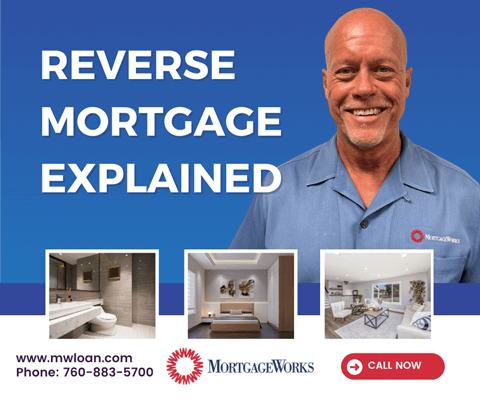Top Reasons to Purchase Reverse Mortgage for Homeowners Over 62
Top Reasons to Purchase Reverse Mortgage for Homeowners Over 62
Blog Article
Unlock Financial Flexibility: Your Overview to Acquiring a Reverse Mortgage
Understanding the complexities of reverse mortgages is vital for house owners aged 62 and older seeking monetary flexibility. As you consider this alternative, it is vital to realize not just exactly how it works but also the effects it might have on your monetary future.
What Is a Reverse Mortgage?

The essential allure of a reverse home loan lies in its possible to enhance monetary flexibility during retired life. Homeowners can utilize the funds for numerous functions, consisting of clinical costs, home renovations, or daily living prices, therefore offering a safety and security net during a vital phase of life.
It is important to comprehend that while a reverse mortgage permits raised capital, it likewise lowers the equity in the home over time. As interest builds up on the superior lending balance, it is essential for potential customers to very carefully consider their long-lasting economic strategies. Consulting with a reverse mortgage or a monetary consultant expert can give important understandings right into whether this alternative aligns with an individual's financial objectives and circumstances.
Eligibility Needs
Understanding the eligibility demands for a reverse home loan is important for house owners considering this monetary choice. To qualify, applicants must go to the very least 62 years of ages, as this age standard allows senior citizens to gain access to home equity without regular monthly home loan payments. Additionally, the homeowner must inhabit the home as their main house, which can consist of single-family homes, certain condos, and produced homes satisfying certain guidelines.
Equity in the home is one more essential requirement; property owners normally need to have a considerable amount of equity, which can be established via an evaluation. The amount of equity readily available will straight influence the reverse mortgage quantity. Furthermore, candidates should demonstrate the capability to maintain the home, consisting of covering real estate tax, property owners insurance, and maintenance costs, making certain the residential property stays in excellent condition.
Additionally, potential consumers should undertake a financial evaluation to review their income, debt history, and general economic situation. This evaluation assists lenders figure out the candidate's capacity to meet continuous responsibilities connected to the residential or commercial property. Satisfying these needs is crucial for protecting a reverse home loan and making certain a smooth financial transition.
Benefits of Reverse Home Loans
Many advantages make reverse home mortgages an enticing alternative for seniors looking to enhance their financial flexibility. purchase reverse mortgage. Among the main advantages is the capability to convert home equity into cash without the requirement for regular monthly home loan repayments. This function allows seniors to gain access to funds for different requirements, such as medical costs, home improvements, or daily living costs, thereby reducing financial stress
Additionally, reverse mortgages give a safety and security web; elders can remain to reside in their homes for as long as they meet the loan requirements, cultivating security during retirement. The profits from a reverse home loan can likewise be used to postpone Social Protection advantages, potentially causing greater payouts later on.
Moreover, reverse home loans are non-recourse car loans, indicating that debtors will never ever owe more than the home's value at the time of sale, securing them and their beneficiaries from financial obligation. The funds received from a reverse home mortgage are typically tax-free, including one more layer of financial relief. Overall, these advantages position reverse home loans as a practical option for seniors looking for to improve their monetary situation while preserving their valued home atmosphere.

Prices and Charges Included
When thinking about a reverse home loan, it's vital to understand the different prices and fees that can impact the total monetary picture. Recognizing these expenditures is vital for making an informed decision regarding whether this financial item is ideal for you.
One of the main prices related to a reverse mortgage is the origination fee, which can differ by lender yet normally ranges from 0.5% to 2% of the home's assessed value. In addition, home owners need to expect closing prices, which might include title insurance policy, evaluation fees, and debt record fees, typically totaling up to several thousand bucks.
Another considerable expenditure is home loan insurance costs (MIP), which safeguard the lending institution against losses. This cost is usually 2% of the home's worth at closing, with a recurring annual costs of 0.5% of the staying car loan balance.
Last but not least, it is very important to think about ongoing expenses, such as residential property tax obligations, property owner's insurance coverage, and maintenance, as the consumer remains in charge of these expenses. By very carefully evaluating these costs and fees, property owners can much better evaluate the monetary effects of seeking a reverse mortgage.
Actions to Start
Starting with a reverse home mortgage includes a number of essential steps that can help enhance the process and guarantee you make notified choices. Assess your economic circumstance and determine if a reverse home mortgage lines up with your long-term objectives. This includes evaluating your home equity, present debts, and the requirement for additional income.
Following, study different lenders and their offerings. Try to find reputable institutions with favorable testimonials, clear charge frameworks, and affordable rate of interest. It's vital to compare conditions and terms to find the most effective fit for your requirements.
After selecting a lending institution, you'll need to complete a detailed application procedure, which typically needs documents of income, properties, and residential or commercial property information. Participate in a therapy session with a HUD-approved counselor, that will give insights into the ramifications and web link responsibilities of a reverse home mortgage.
Conclusion
In final thought, reverse mortgages offer a practical option for elders looking for to improve their financial stability throughout retired life. By converting home equity into available funds, home owners aged 62 and older can attend to different financial needs without the stress of month-to-month repayments.
Understanding the complexities of reverse home loans is essential for house owners aged 62 and older looking for financial freedom.A reverse home mortgage is a financial item made mostly for home owners aged 62 and older, enabling them to transform a part of their home equity right into cash money - purchase reverse mortgage. Consulting with a reverse mortgage or an economic expert specialist can supply beneficial understandings into whether this alternative aligns with a person's monetary objectives and circumstances
Additionally, reverse mortgages are non-recourse finances, official source meaning that customers will never ever owe more than the home's value at the time of sale, shielding them and their heirs from economic obligation. Generally, these advantages setting reverse home loans as a sensible service for senior citizens looking look at this site for to enhance their financial scenario while preserving their cherished home atmosphere.
Report this page